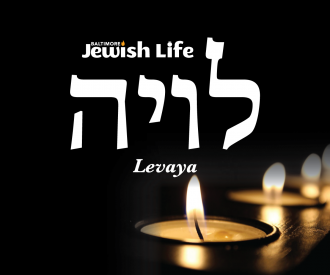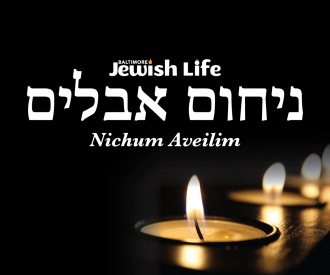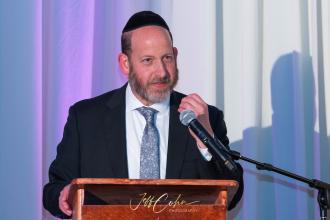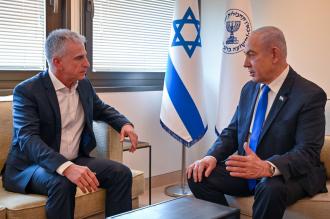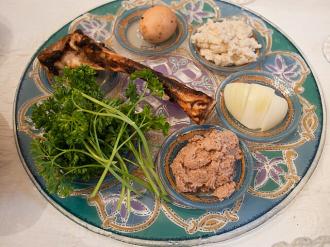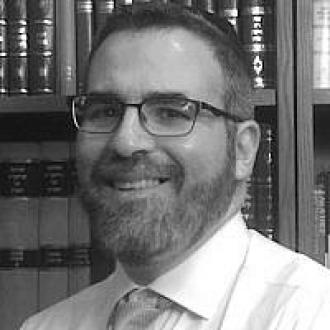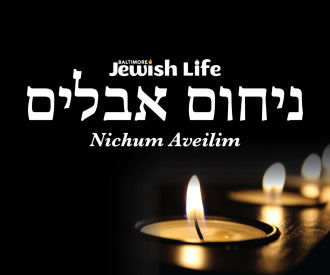After a hurricane, when drinking water may have been fouled, it takes only one-half a teaspoon of bleach to make eight gallons of fouled water potable. If so little chemical can purify so much water, how much more could one good soul…
Why would is Avraham extend himself to the extent he did to save Sodom? What is it about that cruel and depraved place that he deemed worthy of his efforts or forgiveness? The people of Sodom were not simply bad; not simply thoughtless; they were the worst of the worst. They lacked the most basic, human compassion for their fellows. They are not only wicked, evil and lacking in basic human compassion, they are cruel and malicious. They were so vile that God had removed His mercy from them. “Because the outcry of Sodom and Amorah has become great, and because their sin has been very grave, I will descend and see: If they act in accordance with its outcry which has come to Me - their destruction!” (Bereishit 18:20) In Sanhedrin (109b), the Talmud reads into this posuk the most horrific acts of sadism. It speaks of a young woman in Sodom who would secretly hide bread in her pitcher to bring to the poor. When found out by the ruthless Sodomites, they punished her by smearing her body with honey and then placing her atop the city’s wall, so that bees would come and eat her up alive.
Her tortured screams were ignored by the inhabitants of that place, as this and other such atrocities were daily occurrences in that horrible place.
This is the place that Avraham, the epitome of chesed, pleads with God to save? This Avraham whose name we recite every day in U’va LeTzion, saying, Titein emet l’Yaakov, chesed l’Avraham – “Grant truth to Yaakov, kindness to Avraham.” This Avraham who’s very being equates to goodness and righteousness wants to spare Sodom, the antithesis of everything he is, loves and embraces? It just does not add up! To make a pro forma plea for Sodom’s salvation would have stretched our imaginations, but Avraham’s appeal far exceeds that. He argues passionately, intensely and articulately each step of the way. From the moment he heard that God was to destroy Sodom, he was “all in”.
Compare Avraham’s reaction to Noach’s. Noach is told that God will destroy the entire world and he quietly and determinedly goes about building his ark. Not a single word on behalf of mankind, on behalf of the creation that God is set to destroy! Avraham, confronted with the terrible cities of Sodom and Amorah, engages in relentless negotiations for their salvation.
“Will You even destroy the righteous with the wicked?” he wants to know.
“Will the Judge of the entire earth not perform justice?” he challenges.
And on and on, persisting, railing, arguing. “If fifty righteous are found, then Sodom must be saved!” And if only forty-five… forty… twenty… even ten righteous, the city must be saved.
This is not, remember, a dinner argument he is having. This is not a heated disagreement in shul as one carefully folds his talis and prepares to go about his day after minyan. This is before God! This is an argument taken directly to God Most High to save these people. He refuses to accept that these terrible people are simply to be wiped away.
The very idea is unfathomable to Avraham, as it would be to any man who shares in even a fraction of his goodness and righteousness.
And yet…
And yet so many in our contemporary, so-called religious communities could not even imagine being in the same room, the same neighborhood, the same village or town with any Jew “less observant” than they. They could not contemplate sharing the same space with those who do not have the same religious leanings as they; refuse to associate in any meaningful way with those who are observant but “modern”. Likewise, those same modern Orthodox have no interest in living in super frum communities. They would never send their children to those schools or chadorim any more than the frum would send their children to learn in a public school or progressive yeshiva.
There is virtually no mixing.
There is the story of the modern Orthodox Jew in his suit and tie, holding his talis as he walked down the street of a Chassidic neighborhood street on Shabbos. He passed a few sweet Chassidic kids playing. One noticed this “strange” looking gentleman walking past them and whispered to the others in Yiddish, “Iz eher a Yid”?
Is this one a Jew?
Sweet, because it was a child. But we know of adults who ask the same question with hatred and accusation in their hearts. And yet Avraham, Avraham Avinu, argued relentlessly with God to save even the Sodomites!
Imagine for a moment how Avraham would fight to save fellow Jews from fellow Jews!
What is it that makes an Avraham argue, Chalila lecha – it would be a sacrilege to You to do such a thing? What is it that makes him keep going until he finally realizes that there is no argument left? That there are no fifty righteous. No forty. No twenty. Not even ten.
Is this the approach of the absolute man of chesed? Doesn’t Sodom represent all that is the opposite of who Avraham was and what he stood for?
Rav Moshe Feinstein in his Darash Moshe teaches that we discover a principle of morality in Avraham’s determination. Throughout history, we have evidence of nations preaching kindness towards others while simultaneously murdering and destroying those who disagreed with them or who pose any kind of threat to them. They “talk the talk but don’t walk the walk” - she’alashon v’hashita hu chesed, v’amaasim heim retzicha v’chamas.
Avraham, on the other hand, did “walk the walk”. His morality was not based on his nature but on Torah, the ultimate truth. Avraham didn’t hate those who fought or argued against him (a notion so alien to our culture today!). His desire was for them to live so that they would learn, so that they can be positively influenced, and they would improve. He believed that as long there exists a core (of ten) who are decent, caring, spiritual people, then even Sodomites, have a chance to improve. That’s why Rav Moshe says it was such a critical part of Avraham’s argument to have his core group of fifty, forty-five, forty come all the way down to the absolute minimum – ten. He believed that “a single ray of light can deflect much darkness”.
Even if the Sodomites would not listen at that time, as they hadn’t until then, Avraham’s message is that we are still not absolved from continuing the kind, sensitive message, forgiving message. One can never know when that thin ray of light penetrates, when goodness finds its way in. Those involved in kiruv, in investing time, efforts and talents to influence far distant Jews brought up alienated in the secular world, have volumes of stories of those who have returned and responded – when they were finally able to see and hear, when something clicked.
No Jew is to be left behind. No Jew is to be rejected or discounted. If there is a minyan of Jews around who can impact, influence, and change the status quo – with sensitivity and care, without cynical triumphalism and arrogance – the ray of light can find its way in the darkness of one’s soul! Ten Jews. That is all it takes! Ten. That is all that is required to make the difference.
Rabbi Soloveitchik continues the point, “Abraham argued that each group of ten righteous individuals would positively influence the population of their respective cities and save the inhabitants from destruction. In this negotiation, Abraham used the phase ve’haya ka’tzadik k’rasha - so that the righteous should be like the wicked (18:25). Abraham argued that if God were to destroy a city that contains ten righteous individuals, there would be no opportunity for the ten to influence the rasha to become a tzadik.” The lesson is clear. If there exists a minyan of Jews willing to acknowledge their role and fulfill their mission light can be brought to even the darkest community.
To those cynics who say, “Can’t happen.” I concede. If you think only in pragmatic terms, it can never happen. But, to men and women of faith, anything is possible. Avraham, not Noach, is our first acknowledged father, Avinu, precisely because he was a man of faith.
Being a man of faith, believing in God, means doing, getting involved, praying, begging, taking responsibility, never giving up. Just like our first Avinu did. He sought to intercede on behalf of Sodomites, people we would reject out of hand, never mind pray for them!
Men and women of faith, have absolute faith not only in the Creator, but also in those He created. As Rabbi Soloveitchik puts so succinctly, “Abraham believed that in the course of time, the righteous would change the whole structure of the city and succeed in bringing the wicked back to God. That is why he asked, Will the Judge of the entire earth not perform justice?”
Unlike so many contemporary Jews, Avraham believed that there is hope for every human being. He went about his mission, preaching in the name of God, in Whom he believed without reservation. We are the children of Avraham. We are not the children of Noach.
Most Ba’alei Teshuva will tell you there was one kind, caring, sensitive, understanding fellow, an Avraham, a tzadik, who didn’t give up on them, who stuck by them until one day it clicked. The Ba’al Teshuva success stories are rarely of someone who came back from the secular city because of a community. No, it is because there was one Reb Avraham who refused to let go, who believed that “there is hope for every human being, including the most wicked.”
We are fortunate that there are great organizations and movements that are successful in reaching out to the alienated, disenfranchised Jews. They deserve great credit. But ultimately, it will be the one advisor, one teacher, one rav who didn’t let go, who wouldn’t let go; one believed in God and in His chosen one.
It was that one who changed the world. That Avraham.
How we are desperately in need for more Avrahams!

